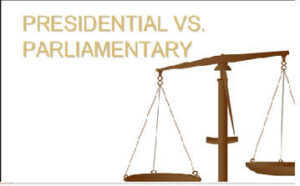Some people believe that allowing children to make their own choices on everyday matters (such as food, clothes, and entertainment) is likely to result in a society of individuals who only think about their own wishes. Other people believe that it is important for children to make decisions about matters that affect them.
Allowing children to make choices encourages them to think independently and develop decision-making skills from an early age. This can contribute to their overall independence and self-confidence. The Cognitive Development Theory of Jean Piaget insists that children are active learners who learn by doing and that children’s knowledge and development occur in stages. So children must be allowed to make their own choices about food, clothes, and entertainment because they will definitely learn something from their personal experiences.
Giving children responsibilities for their choices in choosing their own clothes or deciding what extracurricular activities to pursue can help them learn about accountability and consequences. Moreover, recognizing and respecting a child’s preferences helps them feel valued. This can positively impact their self-esteem and emotional well-being. The Montessori method also emphasizes giving children a high degree of freedom within a prepared environment. It is based on the belief that children are naturally curious and capable of self-directed learning. This is why children have the freedom to choose from a range of activities, explore their interests, and work at their own pace in a Montessori classroom. The role of the teacher is to observe, guide, and provide resources rather than direct every aspect of the child’s learning.
However, parents and caregivers are typically in a better position to judge what is safe and healthy for a child, especially in matters like nutrition, safety, and health-related decisions. Therefore, guidance from parents and caregivers can help children learn how to evaluate options, consider consequences, and make informed decisions. Children may not always have the maturity or understanding to make certain decisions on their own. Parents can set age-appropriate boundaries to protect their well-being. For example, they might encourage certain types of books, games, or activities that support learning and growth. Also. parents often have to consider budgetary constraints when it comes to clothing and entertainment choices. They may need to make decisions based on what is affordable and practical for the family.
Ultimately, finding a middle ground that empowers children to make choices within a framework of guidance and age-appropriate boundaries can be beneficial. This approach respects a child’s autonomy while providing the necessary support and guidance to ensure their well-being and development. It’s important to consider the specific circumstances and the child’s age, maturity level, and individual needs when making decisions about everyday matters.
📍 English Language Educator | Blogger & Content Strategist | 7+ Years in Educational Blogging
Nosheen Bashir is a dedicated English teacher and experienced blogger with over seven years of expertise in content creation and educational writing. Passionate about language, literature, and effective communication, she combines her teaching experience with blogging skills to create insightful, research-backed content that helps learners and educators alike.
🔹 Expertise & Achievements:
✔ English Language Education: A skilled educator with years of experience in teaching English grammar, literature, and communication skills to students of varying levels.
✔ Educational Blogging: Running a successful blog for 7+ years, delivering well-structured, engaging content on language learning, writing techniques, and academic success.
✔ SEO & Content Strategy: Specializes in creating high-ranking, authoritative articles that follow Google’s EEAT principles, ensuring content that is both informative and search-friendly.
✔ Student-Centric Approach: Committed to making English easier, engaging, and accessible, helping readers and students improve their language proficiency.
🚀 With a passion for teaching and writing, Nosheen Bashir is dedicated to crafting educational content that empowers students, teachers, and language enthusiasts worldwide.









